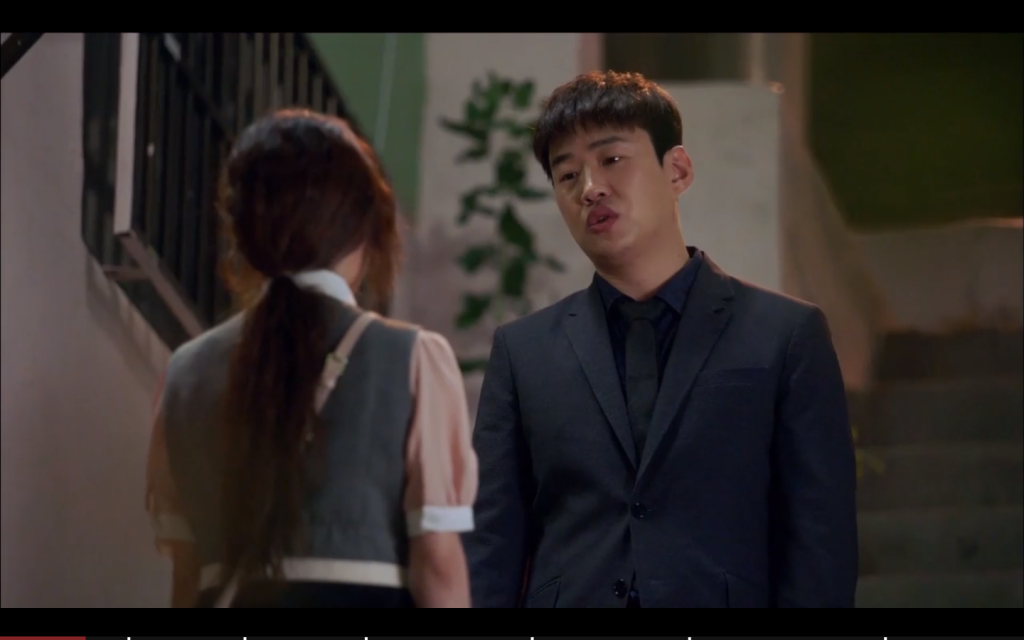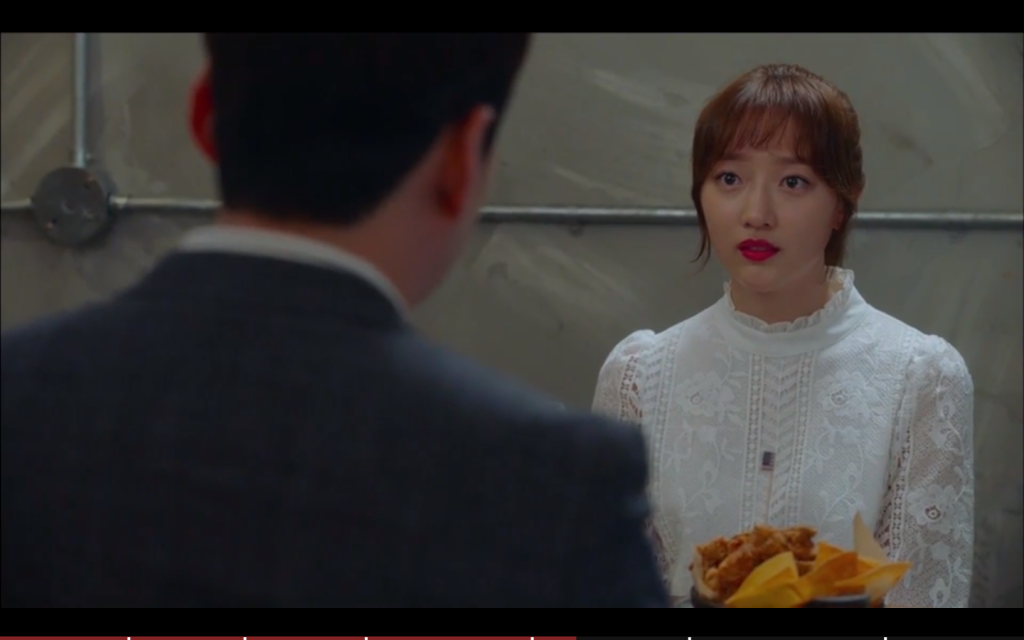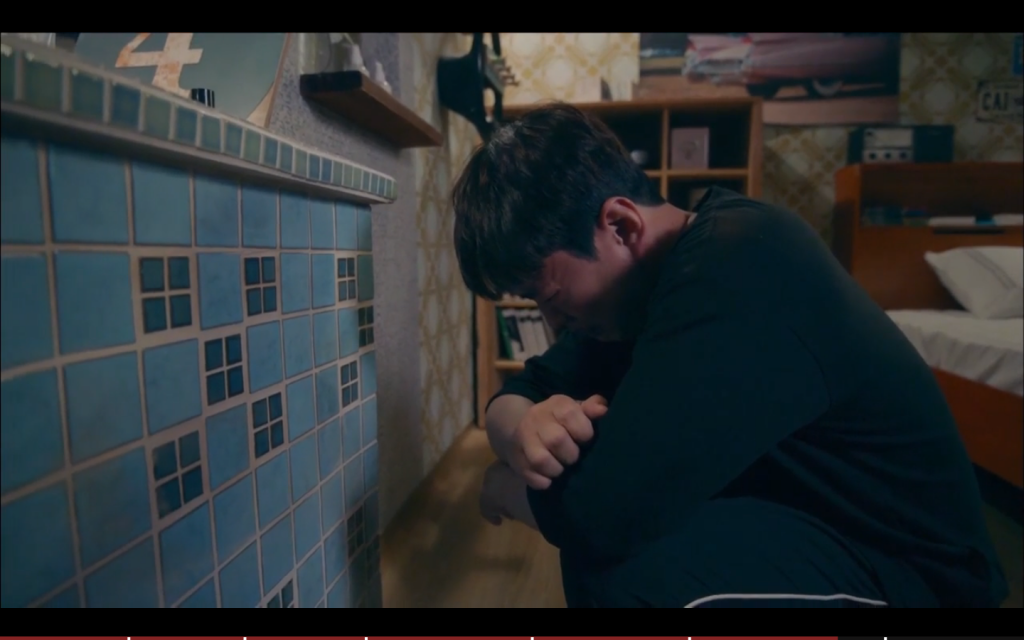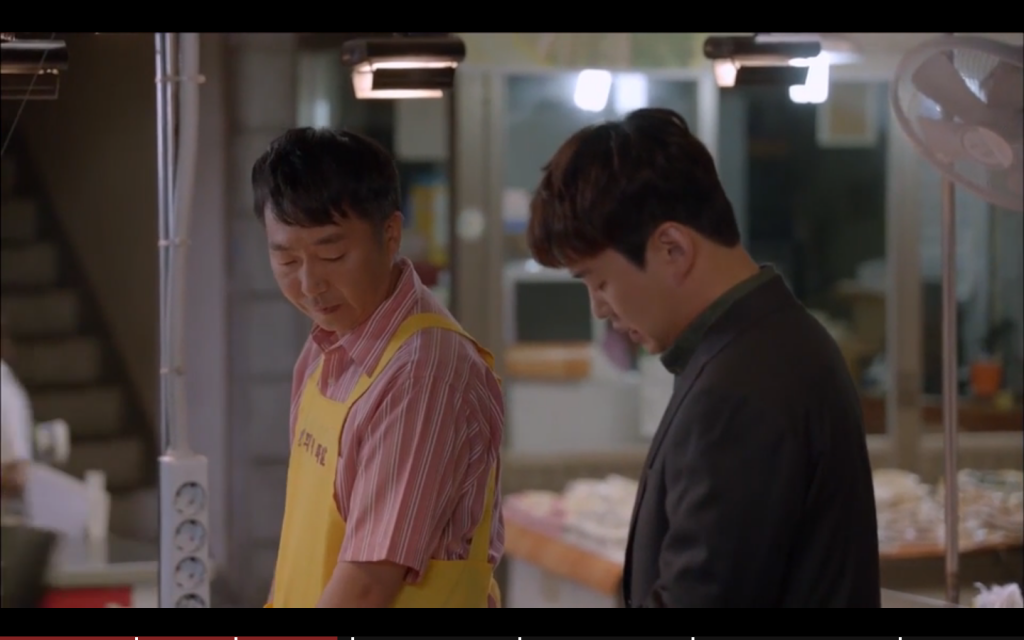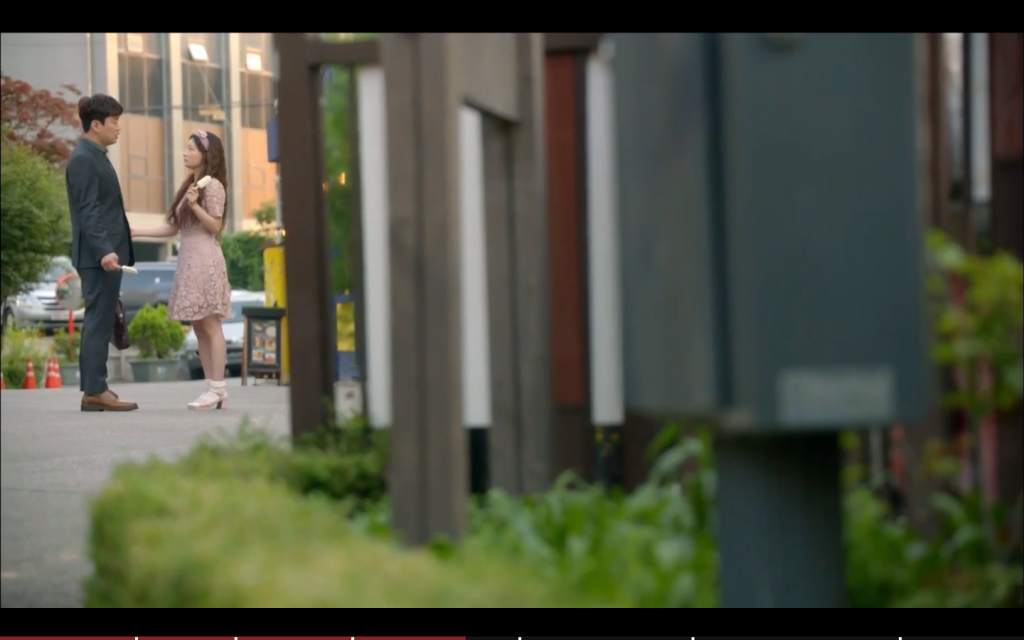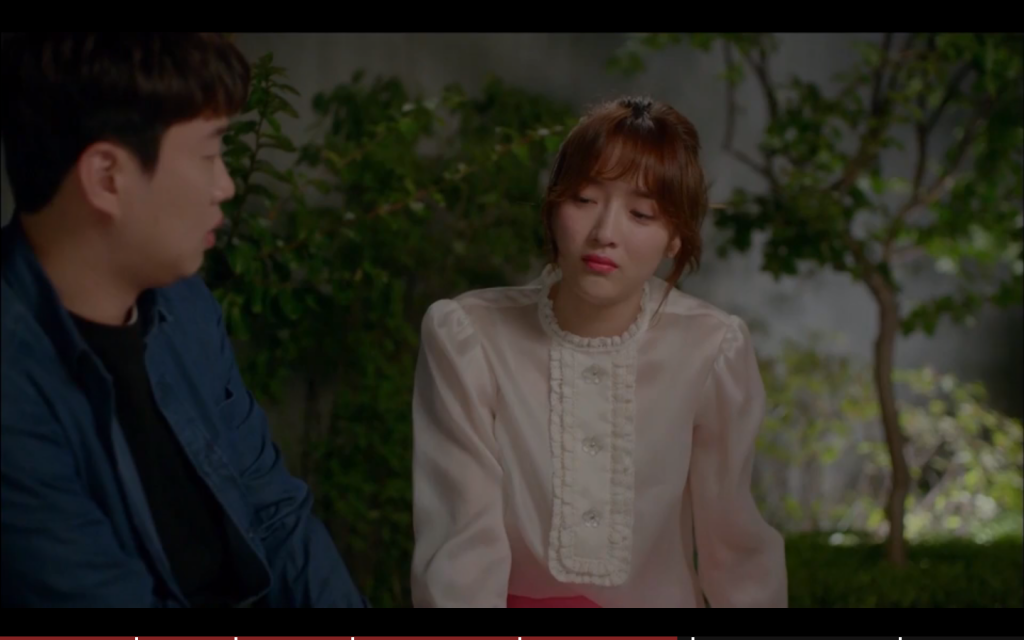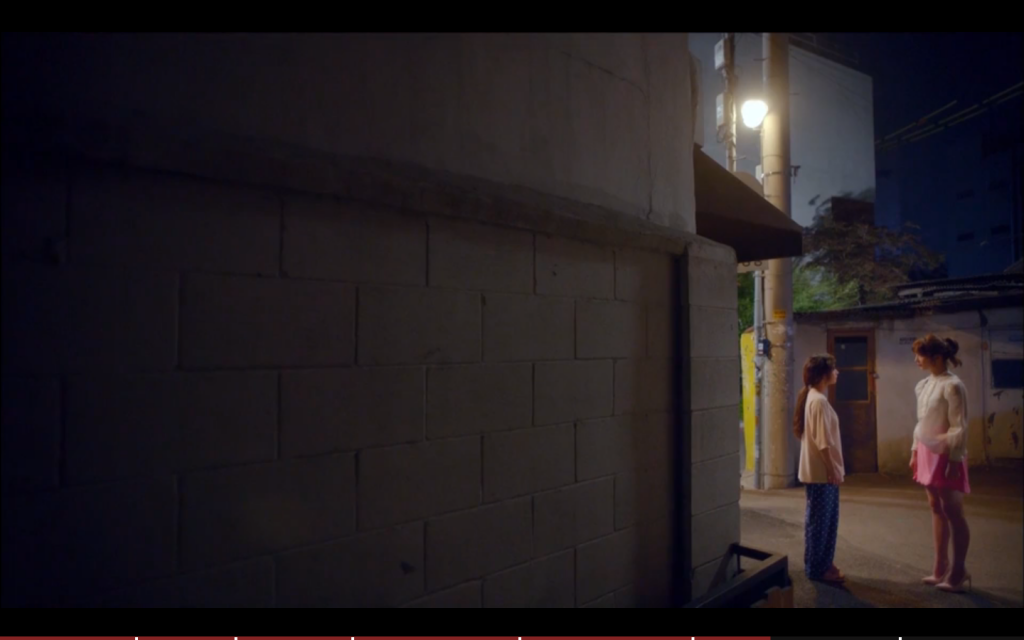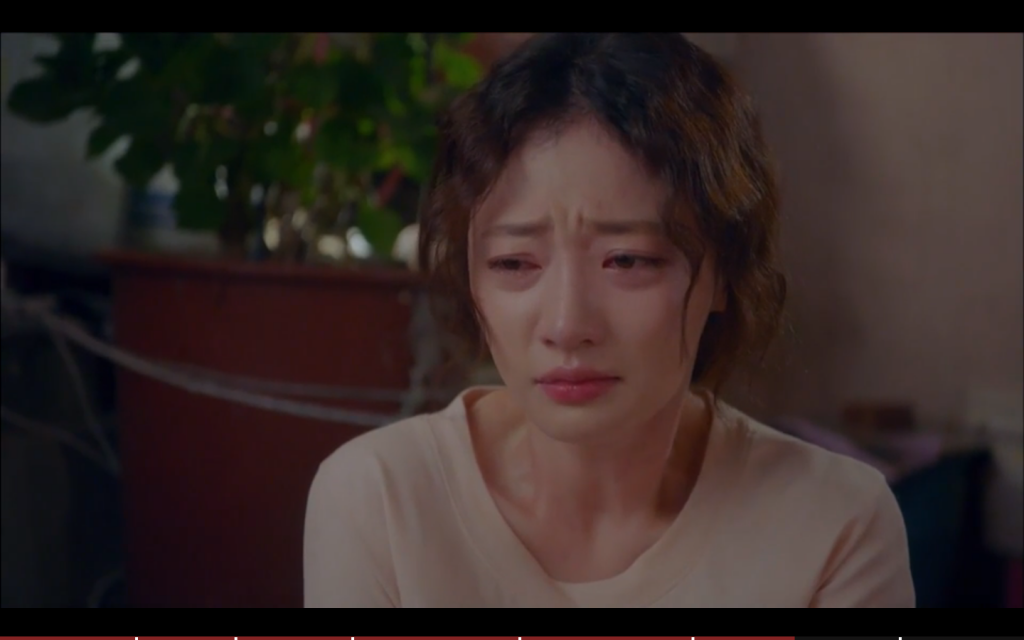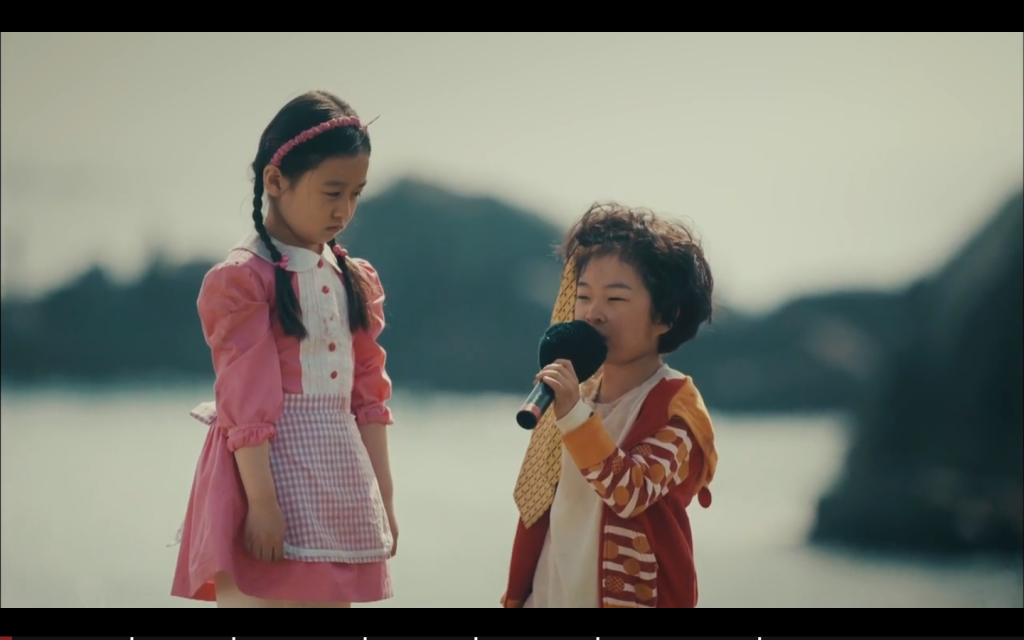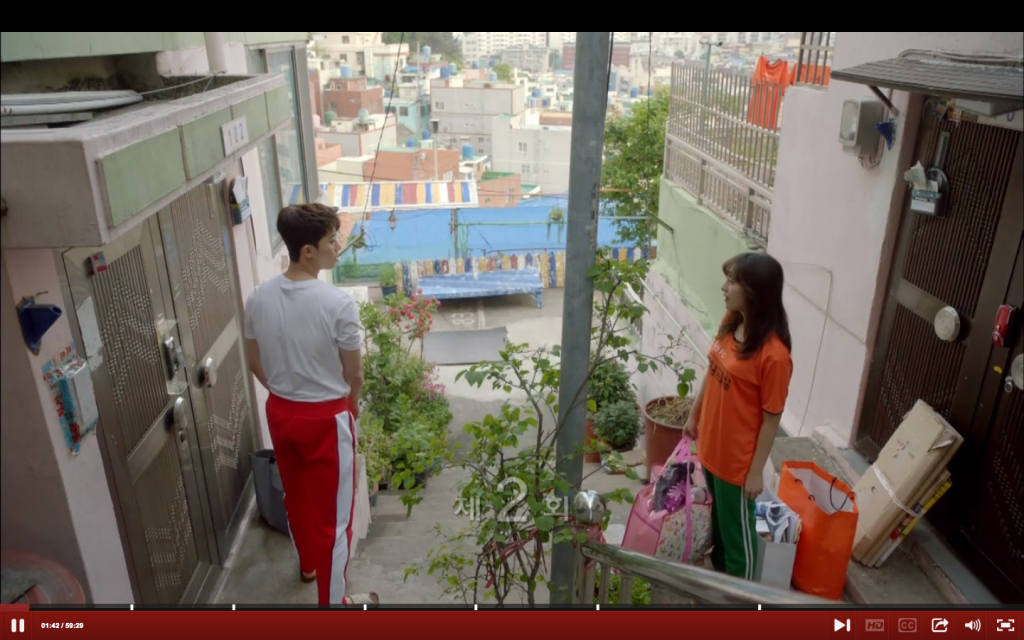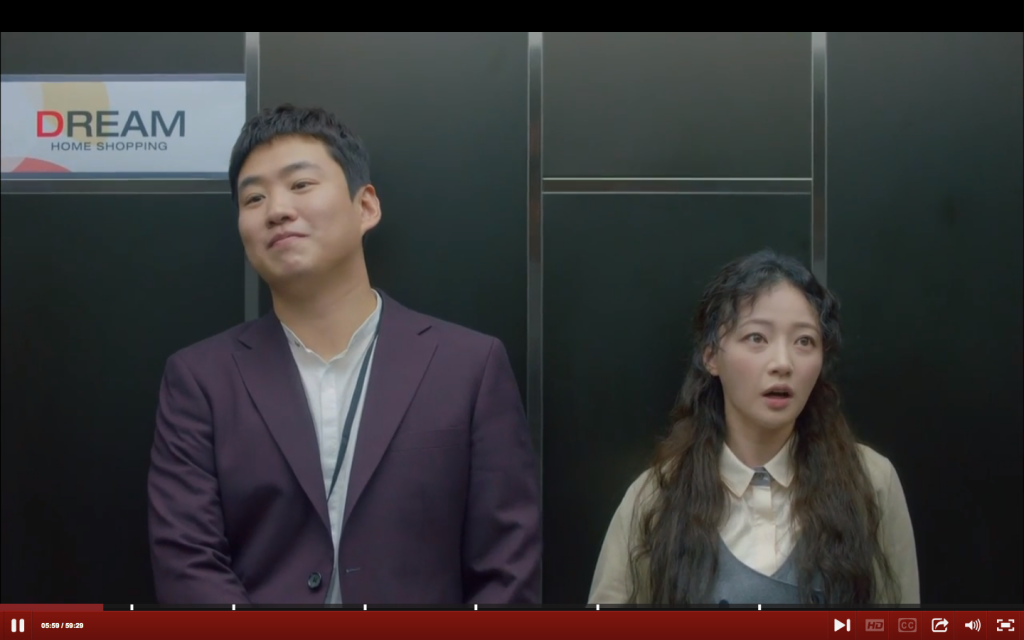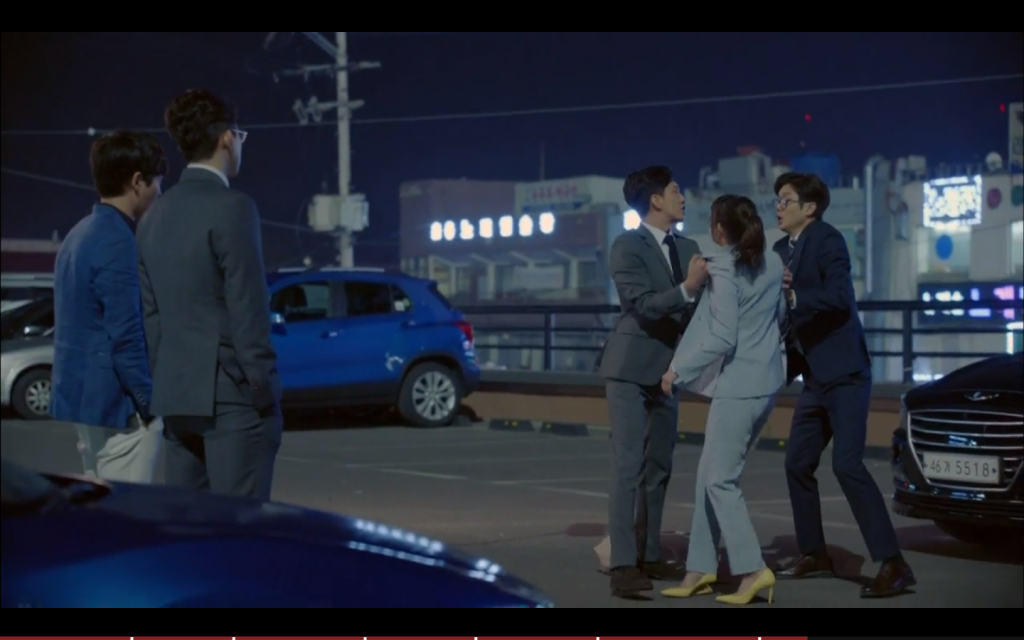Working Class Koreans’ Social Relationships and Personal Development – Fight for My Way
Introduction
After the financial crisis in 1997, the middle class identification declined rapidly in Korea (Nam 2013: 255). The society appears many issues relate with social classes, and class also becomes a main reason to influence Korean people’s daily life. In my paper, I argue that an awareness of class issues and desire to arrest the membership in the middle class guided the social relationships and personal development of Koreans. There is a Korean drama called Fight for My Way, which is directed by Lee Na-jeong, broadcasts through the channel KBS in 2017. I will use this drama as a case to properly explain the Korean social class issues and explain how it might influence the working class Korean people’s lives. Firstly, I think classes obstruct the working class Korean people in their career development and create questions for them to deal with the working unfair treatments, and the combination of dream job and income securities. Then, classes also influence people’s value on the marriage market so leads working class people have disadvantages when they decide to have cross-class marriages. Also some Korean people tend to use marriages as tools to help them receive benefits from their higher class’s spouses because it exists a strong relationship between the social benefits and social classes in the Korean society. Finally, I discuss the friendship would be impossible for Koreans who want to cross their social class status. The moral exclusion and discrimination show in the mind of higher class’s people, and the working class people’s self-respect would hurt in the cross-class social contacts.
The Obstructions in the Career Development:
First of all, social classes create obstructions to working class Korean people in the path of career development and cause many problems for them to deal with the work-place politics. Due to the financial crisis in 1997, the increased competition has made Korean workers change their perception of work to be more realistic on their potential future and working conditions (Kim and Park 2005: 37). In this highly competitive labor market, the working class people who receive less education usually become the losers in the game. Their instable employment and underemployment gradually become one of the main social crises in the contemporary Korean society. In the Korean labor market, the low-educated workers are easily falling into an employment status called irregular workers, which means they are the temporary workers (Hur 2001: 4). Even though having the democratic labor movements happen in today’s Korea, these people still do not receive enough protects on basic labor rights and social wages from the labor union. According to the sociologist scholar Jennifer Jihye Chun, she says, “To demand basic labor protections, many of the irregular workers’ struggles are taking the form of protracted public dramas aimed at reclassifying the employer-employee relationship according to cultural norms, as opposed to legal contractual relations” (2013: 820). Hence, many irregular workers’ unemployment is resulted from the involuntarily dismissal in most cases. In the economist scholar Hur Jai-joon’s research, he indicated that the percentage of unemployed non-regular employees was 78.7 compared with the unemployed wage workers during 1998 to 2000 (2001: 3). Therefore, the instability of work becomes a serious concern for the working class people in the Korean society and sometimes they need to pay more attention on dealing with the employer-employee relationship in workplace because the rate of unemployment tend to be higher than other formal workers.
Some similar existed working problems among the working class Koreans can be seen from the recent Korean drama Fight for My Way as well. In this drama, the two main characters, Choi Ae-ra and Ko Dong-man are both working class Koreans. Both of them have faced failure in their own career fields because of their social classes. The classes make them receive unfair treatments that to compare with their working competitors. For example, between 44 and 50 minutes of episode 3, Ae-ra receives an unfair result during the interview process. In the drama, she has a dream about being a host when she is a child. Then when she is at a working age, she strives for gaining an opportunity to be an announcer in the department store. In this clip, Ae-ra has a competition with another professional graduate who also wants to get the job opportunity but she fails at the end because her competitor has a close relationship with the manager. When Ae-ra knows the result, she asks the manager: “ Since the result is like that, why did you find me at first in the beginning? ” Before the competition, she has already been chosen as the substituted announcer in the department store. However, on the next day, she finds her position is replaced by the other girl so the manager decides to use an interview to solve the conflict. Even though everyone thinks Ae-ra has done a better job than the other girl in the interview, the girl wins the announcer’s position and Ae-ra returns back to her previous position in the department store. Therefore, from Ae-ra’s case, the problem of social class can be reflected in the Korean working places and then to influence the career development of working class people. The unfair working treatments usually happen among the working class people in Korea.
Another example of Ko Dong-man also can show a realistic issue on income security for working class Koreans in the drama. Between 24 and 26 minutes of episode 3, Dong-man tells his coach that he wants to practice boxing again for money. He says: “Having a dream should based on having money and then it is able to express his intention”. From his saying, he worries about his future. He has a dream about boxing and he also realizes the importance of money so he wants to continue his dream with the realistic concern of earning money. The job security and income level are the most important issues in choosing job especially for the relatively lower education workers (Kim and Park 2005: 47). Between the dream and the realistic needs, he chooses the second one at the beginning. He is sensible to share the family’s responsibility from having a stable income. Due to his working class’s status, it brings limitations to his career path so he needs to make a choice between the dream and the reality of having job securities. Hence, from Dong-man’s example, it shows the income security becomes a conflict for working class Koreans to pursue their dream careers.
Overall, the class differences can lead working class people lose job opportunities to present their talents. The sociologist scholar Nam Eunyoung says, “After the financial crisis in 1997, the middle class identification declined rapidly in Korea. Many non-regular workers had to work in unstable, low-paid and poor working conditions without proper fringe benefits and insurance ” (2013: 255). The labor unions are not also enough effective to improve the economic and social status of these workers in the companies (Shin 2013: 222). Based on these general working conditions, working class Koreans are difficult to match their dream with the actual careers’ situation. They need consider the job and income securities as their first priority. As non-regular workers, they are easier to receive worse working conditions than the other workers and get depressed from achieving the dreams. The examples can show in the drama Fight for My Way: managers would firstly consider the benefits of employees who have special relationship with the firm’s director in the Ae-ra’s case; and Dong-man has to give up his boxing dream to exchange income security. The unfair treatments that are based on different social classes exist in the Korean working environment. Thus, this trouble environment can form a cultural norm in the Korean society so these working class people are hurt from the general acceptance. Their underemployment shows the unfair treatments in the Korean labor market, and the working environment is also harsh for them. I think the drama Fight for My Way successfully brings out this social issue on the working class people’s career development, but creates a positive intention that to encourage more of them to cross the obstructions to pursue their dreams even though the reality is harsh, particularly both Ae-ra and Dong-man have achieved their career’s dreams at the end of drama.
The Obstructions in the Marriage Market:
Moreover, classes influence people’s value on the marriage market as well. Korean traditional values can be reflected from the culture of arranged marriage, and to show a high degree of authoritarianism in the Korean society (Peterson et al 2011: 623). Korea has ancient traditions on marriage, which means the parents would arrange marriage for their sons and daughters. When they choose a potential candidate, they will look at the person’s economic, educational, family and regional background to match with their children suitably (Ibid.). Thus, the parents’ expectations represent the quality of their children’s marriage in this arranged marriage custom. Then the tradition may also help to “identify the relative standing of both families within a social class hierarchy” (Ibid., 628). In the arranged marriage, social class is a very significant element to evaluate people’s marriage in Korea. People who come from different social classes are not expected to get married by their parents so class can be seen as the standard of marriage in Korea. In today’s Korean society, this type of expectations continually exists in people’s mind as well especially for Korean parents. They wish their children to find spouses based on the similar family background. For the Korean youths particularly who are in the working class, if they want to change their status of class, they would tend to find higher class’s spouses who can bring potential material benefits to them, so class is also important in their rule of having marriage. Hence, social class has a great impact in the marriage market in Korea.
In the drama Fight for My Way, class difference also creates troubles in the Ae-ra’s loving relationship and the relationship between the couple of Kim Joo-man and Baek Seol-hee. For example, in the episode 7’s clip between 47 and 50 minutes, Ae-ra breaks up her dating relationship with Moo-bin because Moo-bin lies to her about his Japanese fiancée. Ae-ra comes to see Moo-bin at his workplace, which is a hospital, but she unexpected sees he stays with his Japanese fiancée in front of the hospital. Moo-bin explains he will get married soon with this girl who is his director’s daughter. He tells he still loves Ae-ra and he can provide money to her for keeping their relationship in future. He says to Ae-ra, “You’re more humorous, courageous and having a beautiful face like a goddess. You are my 100% ideal person”. Moo-bin likes Ae-ra because of her beauty and cheerful disposition, but his love is selfish and does not exceed his desire on the future job’s standing. He wants to use a utilized marriage to help him reach a better position of job so he does not enjoy in this relationship with his fiancée. He knows Ae-ra’s social class cannot exchange benefits to him except for the happiness. Thus, the conflict results Ae-ra is hurt in this loving relationship, and it explains the class’s influence in the Korean marriage market.
Then also, in the loving relationship between Kim Joo-man and Baek Seol-hee, the two people have experienced some conflicts with their parents because of the class difference. In the episode 6, when Joo-man firstly brings Seol-hee to his home, his mother and sister dislike Seol-hee because they look down on her background. His mother uses the mother-in-law’s authority to manipulate Seol-hee to do the housework in the relative’s party. While Seol-hee’s mother sees her daughter’s struggle, she really pisses her off. Thus, when Joo-man comes to visit Seol-hee’s family later, the parents want him to take seriously with their daughter, and tell Seol-hee not to depreciate herself just because of the income differences. From the conflict between the parents and their children, it reflects the influence of class difference on the marriage’s expectations, especially for the elder Korean generations. They value more on the equality of social class in their children’s marriages.
Generally from the examples in the Korean drama, people can know the importance of social class in the Koreans’ marriage relationship. Viewing television can correlate with the ability of knowing the social reality (Jin and Jeong 2010: 21). Hence, within the highly competitive working environment, utilized marriage may become another social norm in the Korean society through reflecting from the recent Korean dramas. People begin to accept to use marriage to seek benefits and use wealth to set their standard that can benefit to their future development. Then the reason behinds this phenomenon is that the social benefits heavily rely on the social classes to obtain in the Korean society. For working class people, they are the disadvantaged group in the marriage market because they lack good resources such as wealth to highlight themselves. If in a worse situation, they will fall into a single-person household. There is a rapid growth on single-person households in Korea, and it becomes the main reason to cause these people’s depression and suicide because of the loneliness and old-age poverty (Lee 2013: 12). Thus, the social class may result a life suffering for the lower class Koreans if they do not receive good quality’s marriages. Then also the class disadvantage is easily to cause issues for couples to meet their parents’ expectations before getting married. Particularly, the traditional dominance of husband’s side in the household provides authority to the mother-in-law so it would more often to cause problems to deal with the relationship with their lower-class’s daughter-in-law in families, like the Joo-man and Seol-hee’s relationship with their parents in the drama. Elder generations think highly on the equality of social classes for bringing benefits in their children’s marriages, and this is also a continued traditional value in Korea. Thus, it causes the troubles in the cross-class Korean people’s marriage. In the sociologist scholar Kim Seungkwon’s research, the finding shows that “among dual-earner families, the proportion of cross-class families is higher in Korea than in the United States, Sweden, Britain and Australia” (1997: 130). Cross-class families become more usually to appear in the Korean society so it could mean the conflicts between elder and younger generations that are easier to occur in the cross-class marriages due to their different expectations. Therefore, working class people receive disadvantages not only when they choose partners in the marriage market, but also when they choose to marry with cross-class spouses.
The Obstructions to Receive Cross-class Friendships:
Additionally, friendship would be impossible for Koreans who want to cross their social class status. People would feel more comfortable when they have social contacts with the people who have similar social background. Sociologist scholars Stephen J. Frenkel and Lee Byoung-hoon argue that “contract workers’ relations with regular workers are characterized by moral exclusion, implying discrimination and domination” (2004: 509). In the working companies, this special relationship can link with the work-place politics. The difference between the contract workers and the regular workers is social class difference. Hence, due to this example, we can reflect there is a moral exclusion and discrimination exists in the different classes so leads people cannot receive cross-class friendships.
In the drama Fight for My Way, the moral exclusion can be seen from the Ae-ra’s and Dong-man’s social relationships with their classmates. In the episode 2, Ae-ra is invited to attend her friend’s wedding ceremony but there is an embarrassing moment when she hears the talking among her previous classmates. The marriage ceremony arouses many Ae-ra’s classmates’ admiration because the bride marries to a doctor and receives happiness from the good marriage. While when they turn to talk about Ae-ra, the hard living situation makes them feel pitiful to her so injures the Ae-ra’s self-respect. In this scene, viewers can see Korean people’s different attitudes to the different social classes’ people, so reflects on the moral exclusion in the Korean society. Ae-ra lives as a working class Korean but her classmates would classify her as a life’s loser. Her classmates think she achieves nothing, while the bride can marry with a successful man to receive a better life so becomes her own success in the marriage. Class and wealth are the standards for people to determine one’s success. Hence, higher class people tend to ostracize the relationships with lower class people in order to show their dominant positions and their status’s difference. Then the lower class people would feel their self-respect is lost during they contact with the higher class people so they also avoid this situation happens. Therefore, the class difference can cause a moral exclusion among people, and the fewer contracts reduce the possibilities in the cross-class friendships as well.
Also from the unfriendly relationship between Dong-man and Moo-bin, the social class’s discrimination is reflected in the drama. Moo-bin starts to dislike Dong-man when they are the classmates at the high school. Then the despised relationship continues exist when they meet again in fewer years later. Moo-bin becomes a doctor so he has a higher social class than Dong-man. In the episode 2, Moo-bin is not willing to recognize Dong-man when they have an unexpected meet in outside. While his strange behavior is explained when he talks with Ae-ra in the episode 7. Moo-bin tells Ae-ra he is annoyed Dong-man can always feel happy even though he has nothing. Hence, Moo-bin has discrimination on Dong-man because they are in different social classes. The discrimination would transfer to a jealousy when he finds Dong-man lives happier than him. In his mind, only higher-class people can receive happiness because they are dominant over the working class people in society. He looks down on Dong-man so the discrimination makes him wants to keep a distance from Dong-man. Hence, even if they are high school classmates, the social class’s discrimination makes there is no friendship between them.
From the above two examples in the drama, they present the cross-class friendships are difficult to have in the Korean society. Working class people usually receive moral exclusion and discrimination from higher social class people. In the society, higher class Koreans tend to use a despised attitude to deal with the relationships with lower class people because they want to make clear distinctions with them. During the contact, these unfriendly speaking and behaviors can injure the lower class people’s self-respect. In the social events, lower class people’s identities can be separated from others through people’s talking so they also try to avoid hurt from the less cross-class connections. This is an unhealthy circle for working class people. The moral exclusion and discrimination can bring a worse situation for them to live in society such as the issue of mental health. The living pressure plus the unfriendly social relationship environment can easily cause mental health problems for the working class people. Therefore, the social class plays an important role in the contemporary Koreans’ social relationships, and results a cross-class friendship’s trouble for the working class people in Korea.
Conclusion
Through discussing the characters’ cases in the drama Fight for My Way (2017), the working class Korean people’s lives can be presented. The drama leads more people understand the class issues in the contemporary Korean society. The main characters come from the working class’s status so they have to face many troubles that relate with their career, marriage and social relationships. From their examples, the general recent social issues on class in Korea can be reflected. Therefore, I firstly argue classes can obstruct the working class people in their career development and cause problems on their working unfair treatments, and finding a balance between the dream job and income securities. Secondly, I think classes influence people’s value on the marriage expectations. It makes working class people receive disadvantages in the marriage market and when they have the cross-class marriages. Marriage also can become a tool to help people receive benefits from their higher class’s spouses due to the strong relationship between the social benefits and social classes in the Korean society. Finally, I argue that it is impossible for Koreans who want to cross their social class status to receive friendships because of the moral exclusion and discrimination, so working class people’s self-respect is hurt during the contacts with higher-class people.
Bibliography:
Chun, Jennifer Jihye. “South Korea.” In Sociology of Work: An Encyclopedia, edited by Vicki Smith, 816-821. Davis: University of California Press, 2013.
Frenkel, Stephen J. and Lee, Byoung-hoon. “Divided Workers: Social Relations Between Contract and Regular Workers in a Korean Auto Company.” Work, Employment and Society, no. 18 (2004): 507-530.
Hur, Jai-joon. “Economic Crisis, Income Support, and Employment Generating Programs: The Korea’s Experience.” Seminar diss., Korea Labor Institute, 2001.
Jin, Bumsub and Jeong, Seongjung. “The Impact of Korean Television Drama Viewership on the Social Perceptions of Single Life and Having Fewer Children in Married Life.” Asian Journal of Communication, no. 20 (2010): 17-32.
Kim, Andrew Eungi and Park, Gil-sung. “Changes in Attitude Toward Work and Workers’ Identity in Korea.” Korea Journal, no. 45 (2005): 36-58.
Kim, Seungkwon. “Gender, Family, and Social Class in Korea.” PhD diss., University of Hawaii, 1997.
Lee, Geun-tae. “Korea’s Human Capital Is Faltering.” Korea Focus, no. 09 (2013): 1-16.
Nam, Eunyoung. “Social Risks and Class Identification after the Financial Crisis in Korea.” Development and Society, no.42 (2013): 237-262.
Peterson, Bill E., Regina Kim, Jessica M. McCarthy, Clare J. Park, and Laila T. Plamondon “Authoritarianism and arranged marriage in Bangladesh and Korea.” Journal of Research in Personality, no. 45 (2011): 622-630.
Shin, Kwang-yeong. “Globalisation and the Working Class in South Korea: Contestation, Fragmentation and Renewal.” Development and Society, no 42 (2013): 237-262.



